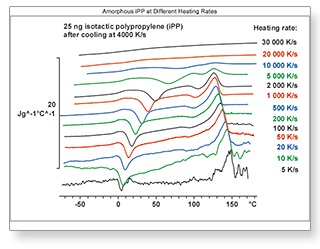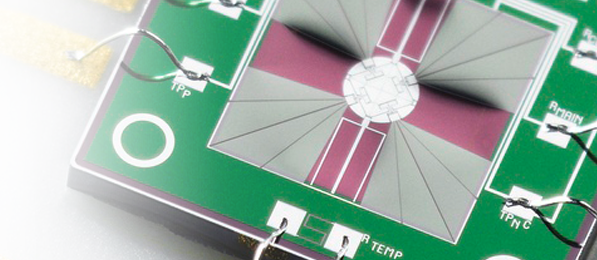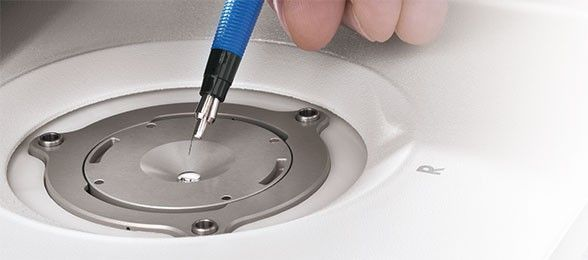The Flash DSC 2+ is the ideal complement to conventional DSC with heating and cooling rates that cover a range of more than 7 decades.
Gain New Insight into Materials
The Flash DSC 2+ from METTLER TOLEDO redefines fast-scanning differential scanning calorimetry (DSC). The tool can examine reorganization processes that were not possible to measure in the past.
The Flash DSC 2+ is the perfect complement to the traditional DSC. Cooling and heating rates cover a range of over seven decades.
Flash Differential Scanning Calorimeter (DSC) 2+
Video Credit: METTLER TOLEDO
Users can make the most of the fastest commercially available DSC—ideal for examining fast crystallization and reorganization processes in temperatures ranging from −95 °C to 1000 °C.
The ultra-high heating and cooling rates introduce a new dimension to the analysis of thermally induced physical transitions and chemical processes—for instance, the crystallization and reorganization of metals, polymers, and other materials.
Ultra-High Heating and Cooling Rates
Thanks to high heating rates, materials can be examined without any disturbance from the reorganization processes—no time for such processes to take place. Flash DSC is also the perfect technique for examining crystallization kinetics.

Image Credit: METTLER TOLEDO
Fast Response Sensor
In the Flash DSC 2+, the sample is directly positioned onto the MultiSTAR chip sensor. Using the patented dynamic power compensation control circuit, measurements can be carried out with minimum noise level at high cooling and heating rates.
Users can operate the Flash DSC 2+ by using either of the two MultiSTAR sensors (UFH 1 or UFS 1) placed on a steady ceramic substrate with electrical connections.

Image Credit: METTLER TOLEDO
User-Friendly Ergonomics and Functionality
A sample can be prepared and inserted by sitting comfortably in front of the instrument. The sample is initially cut to size on a tiny glass microscope slide positioned over the sensor. An ideal sample specimen is then directly conveyed to the sensor and positioned using a hair.

Image Credit: METTLER TOLEDO
Flash Differential Scanning Calorimetry (Flash DSC)
Flash DSC 2+
DSC is the most significant technique in thermal analysis. It quantifies the heat flow to or from a sample as a function of time or temperature, thus allowing users to quantitatively measure the physical transitions and chemical reactions.
Through the Flash DSC 2+, users can prepare samples with defined structures, like those that take place during quick cooling in injection molding procedures. The application of different cooling rates has an impact on the structure and crystallization behavior of the sample.
In traditional DSC instruments, the sample is measured in a crucible to guard the sensor. However, the thermal conductivity and heat capacity of the crucible have a major impact on the measurement.
Complete Thermal Analysis System
A complete thermal analysis system contains four different measurement methods. Each method defines the sample in a different manner. Interpretation is simplified by the combination of all the results.
While DSC or Flash DSC enables heat flow measurements, the other instruments quantify the mechanical modulus (DMA), change in length (TMA), or weight loss (TGA).
All these quantities vary as a function of temperature.
- Flash DSC
- STARe Excellence Software
- Thermal Analysis News